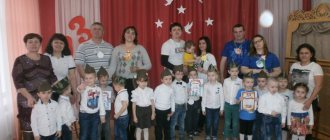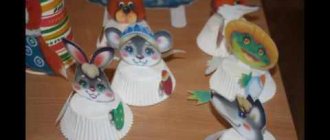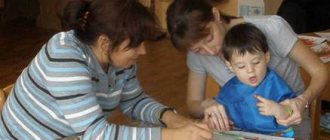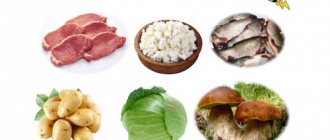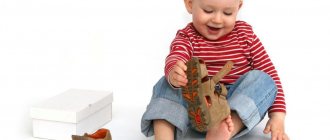Summary of a drawing lesson on the topic: “Favorite toys”
E koši kiši
to byndagy ұyimdastyrylgan oku kyzmetіnіn notes
Summary of organized educational activities in the second junior group
Lesson/Date:
1. 03.19
Tarbieshi/Teacher: Ospanova A.M.
Bilim take salas/Educational field: “Creativity”
Pәn/Subject: “Drawing”
otpeli takyryp / Cross-cutting theme: “In the world of the incredible”
Takyryby/Topic: “ Favorite toys ”
Maksattaras/Goals:
1. Tarbielik - educational:
instill in children a caring attitude towards toys
;
cultivate interest in artistic creativity.
2. Damytushylyk developing:
Develop creative perception and imagination,
develop aesthetic feelings, develop memory, attention, accuracy;
3.Okytu - training
:
Teach the ability to draw and paint over a picture, arrange it beautifully on a sheet of paper, strengthen the ability to hold a brush correctly; learn to guess riddles;
Pedagogical technology / pedagogical technology::
health-saving, personality-oriented, information and communication
Resource kamtamasyz etu / Resource provision:
card index of riddles, exhibition of toys.
Bil ingvaldik component /
Bilingual component : toy - oyishyk, favorite toy - suyikti oyynshyk
Ұyimdastyrylgan oku kyzmetіnіn barysy/ Progress of the lesson:
I .Ұымдастырушылқ кезңі/organizational moment
1.Reading a poem:
Our toys are good: Dolls, bears and firecrackers, It’s fun to play with them, But we must not forget: Toys are not people, But everyone understands And they really don’t like it when they break them. Let the toys be friends with us, We won’t offend them, Let’s play and then put everything back in its place. (Z. Petrova)
II . Negіzi bolіmі/main part .
— Guys, tell me what this poem is about?
— Where do toys come from at home, in kindergarten?
—
Yes, but first they are made in a toy factory, only then do they get to the store where they are bought. I want to invite you to the toy store to add them to our group. And in order to purchase them, you need to pay not money, but solve riddles about the toys.
2. Asking riddles:
1.Wooden girlfriends.
They dance on the top of his head,
They beat him, and he thunders,
He orders everyone to keep pace. (Drum).
2. She doesn’t need a driver at all. You turn it on with the key - the wheels will start spinning, put it in, and it will rush off. (Wind-up machine)
3. The beloved animal is all made of plush: Paws, tail, even ears. (Teddy bear)
4. Gray flannelette animal,
Cross-eyed - long-eared.
Well guess who he is
And give him a carrot! (Bunny).
Imagine that you will now become master artists, I suggest you now draw your favorite toys.
Sozdik zhumys/ Vocabulary work :
Explanation of the meaning of new words, illustrations.
Bilingual component /
Bilingual component : toy - oyishyk, favorite toy - suyikti oyynshyk
3. Display of work.
4. Explanation of safety rules.
5. Finger gymnastics
.
I play with toys: (Hands in front of you, clench and unclench the fingers of both hands.)
I throw the ball to you, (We stretch our arms forward - “throw the ball.”)
I assemble the pyramid (we place straight hands, palms down, on top of each other several times.)
I drive the truck everywhere. (We move the slightly open hand of our right hand in front of us - “roll the car.”)
6. Independent work of children.
7. Exhibition of works.
You have made wonderful toys, they can be placed in our exhibition.
III . Korytyndy/final part
Analysis of the work of organized educational activities
-What did we talk about today?
-What did you like?
— What do you remember?
E koši kiši
to byndagy ұyimdastyrylgan oku kyzmetіnіn notes
Summary of organized educational activities in the second junior group
Otkizu kuni/Date:
1. 03.19
Tarbieshi/Teacher: Esmaganbetova G.A.
Bilim take salas/Educational field: “Creativity”
Pәn/Subject: “Drawing”
otpeli takyryp / Cross-cutting theme: “In the world of the incredible”
Takyryby/Topic: “ Favorite toys ”
Maksattaras/Goals:
1. Tarbielik - educational:
instill in children a caring attitude towards toys
;
cultivate interest in artistic creativity.
2. Damytushylyk developing:
Develop creative perception and imagination,
develop aesthetic feelings, develop memory, attention, accuracy;
3.Okytu - training
:
Teach the ability to draw and paint over a picture, arrange it beautifully on a sheet of paper, strengthen the ability to hold a brush correctly; learn to guess riddles;
Pedagogical technology / pedagogical technology::
health-saving, personality-oriented, information and communication
Resource kamtamasyz etu / Resource provision:
card index of riddles, exhibition of toys.
Bil ingvaldik component /
Bilingual component : toy - oyishyk, favorite toy - suyikti oyynshyk
Ұyimdastyrylgan oku kyzmetіnіn barysy/ Progress of the lesson:
I .Ұымдастырушылқ кезңі/organizational moment
1.Reading a poem:
Our toys are good: Dolls, bears and firecrackers, It’s fun to play with them, But we must not forget: Toys are not people, But everyone understands And they really don’t like it when they break them. Let the toys be friends with us, We won’t offend them, Let’s play and then put everything back in its place. (Z. Petrova)
II . Negіzi bolіmі/main part .
— Guys, tell me what this poem is about?
— Where do toys come from at home, in kindergarten?
—
Yes, but first they are made in a toy factory, only then do they get to the store where they are bought. I want to invite you to the toy store to add them to our group. And in order to purchase them, you need to pay not money, but solve riddles about the toys.
2. Asking riddles:
1.Wooden girlfriends.
They dance on the top of his head,
They beat him, and he thunders,
He orders everyone to keep pace. (Drum).
2. She doesn’t need a driver at all. You turn it on with the key - the wheels will start spinning, put it in, and it will rush off. (Wind-up machine)
3. The beloved animal is all made of plush: Paws, tail, even ears. (Teddy bear)
4. Gray flannelette animal,
Cross-eyed - long-eared.
Well guess who he is
And give him a carrot! (Bunny).
Imagine that you will now become master artists, I suggest you now draw your favorite toys.
Sozdik zhumys/ Vocabulary work :
Explanation of the meaning of new words, illustrations (slide presentation).
Bilingual component /
Bilingual component : toy - oyishyk, favorite toy - suyikti oyynshyk
3. Display of work.
4. Explanation of safety rules.
5. Finger gymnastics
.
I play with toys: (Hands in front of you, clench and unclench the fingers of both hands.)
I throw the ball to you, (We stretch our arms forward - “throw the ball.”)
I assemble the pyramid (we place straight hands, palms down, on top of each other several times.)
I drive the truck everywhere. (We move the slightly open hand of our right hand in front of us - “roll the car.”)
6. Independent work of children.
7. Exhibition of works.
You have made wonderful toys, they can be placed in our exhibition.
III . Korytyndy/final part
Analysis of the work of organized educational activities
-What did we talk about today?
-What did you like?
— What do you remember?
OPEN DRAWING LESSON IN THE FIRST JUNIOR GROUP Topic: “Christmas tree with balls”
MBDOU kindergarten No. 14 “Zernyshko”, Naberezhnye Chelny
OPEN LESSON ON DRAWING IN NON-TRADITIONAL TECHNIQUES - “POKING” DRAWING IN THE FIRST JUNIOR GROUP Topic:
“Christmas tree with balls”
Purpose:
Introduce children to the new “poke” drawing technique.
Tasks:
Educational:
consolidate children's knowledge about color, the ability to depict round objects;
Developmental:
develop the ability to draw using the “poke” technique;
Educational:
cultivate a desire to use certain colors in drawing (yellow, green, red).
Materials and equipment:
sample drawing of a New Year tree, Christmas tree toys (multi-colored balls), model of a Christmas tree, colored paints for each child, silhouettes of Christmas trees cut out of paper, cotton swabs or sponge stamps, a piece of music (Z. Alexandrova’s song “How many colored balls are there on a Christmas tree”
Progress:
A teacher and children enter the group.
Educator:
Look guys, we have received a letter. Let's find out who it's from? (reads the letter).
Text of the letter
Hello kids, girls and boys.
I walked past the garden and dropped a Christmas tree in a group. I decorated all the Christmas trees, but forgot about yours. Help me decorate the Christmas tree. Your Grandfather Frost. Educator:
Shall we help grandfather?
Children:
Yes, we will help.
Educator:
Look.
Here it is, the Christmas tree. Let's decorate it. Didactic game “Decorate the Christmas tree” Educator:
Do you know how to decorate the Christmas tree?
Teach me? What do we need? Children:
Toys.
Educator:
Here are our toys, cars, dolls, cubes.
Do we need such toys to decorate the Christmas tree? Children:
No
Educator:
Look at the different size toys we have.
Tell me what they are? Children:
Small and large toys.
Educator:
Well done!
What can you say about color? Children:
They are different: red, yellow, white.
Educator: Let's
take each ball and decorate our Christmas tree.
(DECORATING THE TREE) Educator:
Look how our Christmas tree is dressed up.
Oh look. Our Christmas tree turns out to be not alone. She brought her sisters from the forest. (POINTING AT THE TABLES) Educator:
Let's decorate them so that they are as beautiful as their big sister.
(CHILDREN SIT AT TABLES) Educator:
Look what's on our tables today.
Children:
Napkins, paints, sticks, Christmas trees.
Educator:
Well done!
Now let's take the sticks and start decorating the Christmas tree with balls. Look how I do it. ( SHOW WITH EXPLANATION ) , first of one color, then press the tip of the stick to the Christmas tree and put it back, and so on throughout the Christmas tree, then take another color, etc. Educator:
The balls should be hung on all branches and be colorful.
Did you all manage? How prettier our Christmas trees have become. Look, our Christmas tree is sad. While we were decorating her sisters here, she got bored. Let's go decorate our Christmas tree. Phys. just a minute.
Notes on art and art (drawing) in the second junior group on the topic: “Baby books.”
Abstract of the GCD in fine art (drawing) in the 2nd junior group on the topic: “Baby books.”
Prepared by Moskaleva L.V., teacher at MBDOU d/s No. 21, Novocherkassk, 2020.
Target.
Develop the ability to draw a square, quadrilateral with continuous hand movements.
Tasks.
· Practice shading in different ways (top to bottom or left to right).
· Develop creativity and imagination.
· Foster independence
Preliminary work.
· Examining and reading, noting the shape and brightness of their design by illustrators.
· In their free time, teaching children to trace square and rectangular objects along the contour with continuous movements, fixing the rotation of the hand at each corner.
Material.
· Album sheets,
· colored pencils and wax crayons,
· a selection of books for children.
GCD move
There's a knock on the door.
The storyteller grandmother enters. There is no chest in his hands.
V. - Guys, look who came to visit us. This is grandma, a storyteller.
Grandmother greets the children.
B. - Guys, do you like fairy tales? What fairy tales do you know? Children's answers.
B.- But I came to you not empty-handed. Look what I brought you.
Grandma takes baby books out of her chest.
We all look at books together.
V.- Guys, tell me, are the books big or small? That’s right, the books are small.
-That’s why they are called baby books.
-And, do you want to make such books yourself?
-What shape are they? (quadrangle).
-Now we will draw a quadrangle in the air.
Children draw in the air, clearly drawing the lines of the sides of the quadrangle.
But before we get to work, let's take a little rest.
Next, on the easel, show again how to draw a quadrangle (we start with a line, which we draw from left to right, then from top to bottom, from right to left and from bottom to top). Draw children's attention to how it is necessary to clearly draw the corners. Practice drawing a quadrilateral in the air again.
V. - Guys, before we start work, we will make a baby book from a landscape sheet. To do this, we need to fold the sheet in half, connect the corners and opposite sides of the sheet, iron the fold line with our hand.
On each page, children draw quadrilaterals; at this time, monitor the correctness of the form-building movements. When the children finish drawing, ask them to color it.
V. - Guys, now we will remember the methods of painting (from top to bottom or from left to right).
At the end of the lesson, we all look at the books together.
B. - Guys, how beautiful and different your books turned out, bright and colorful.
- And in order for them to turn out really good, they don’t have enough pictures, so take the books home, kids, fantasize with your parents and stick on different pictures.
